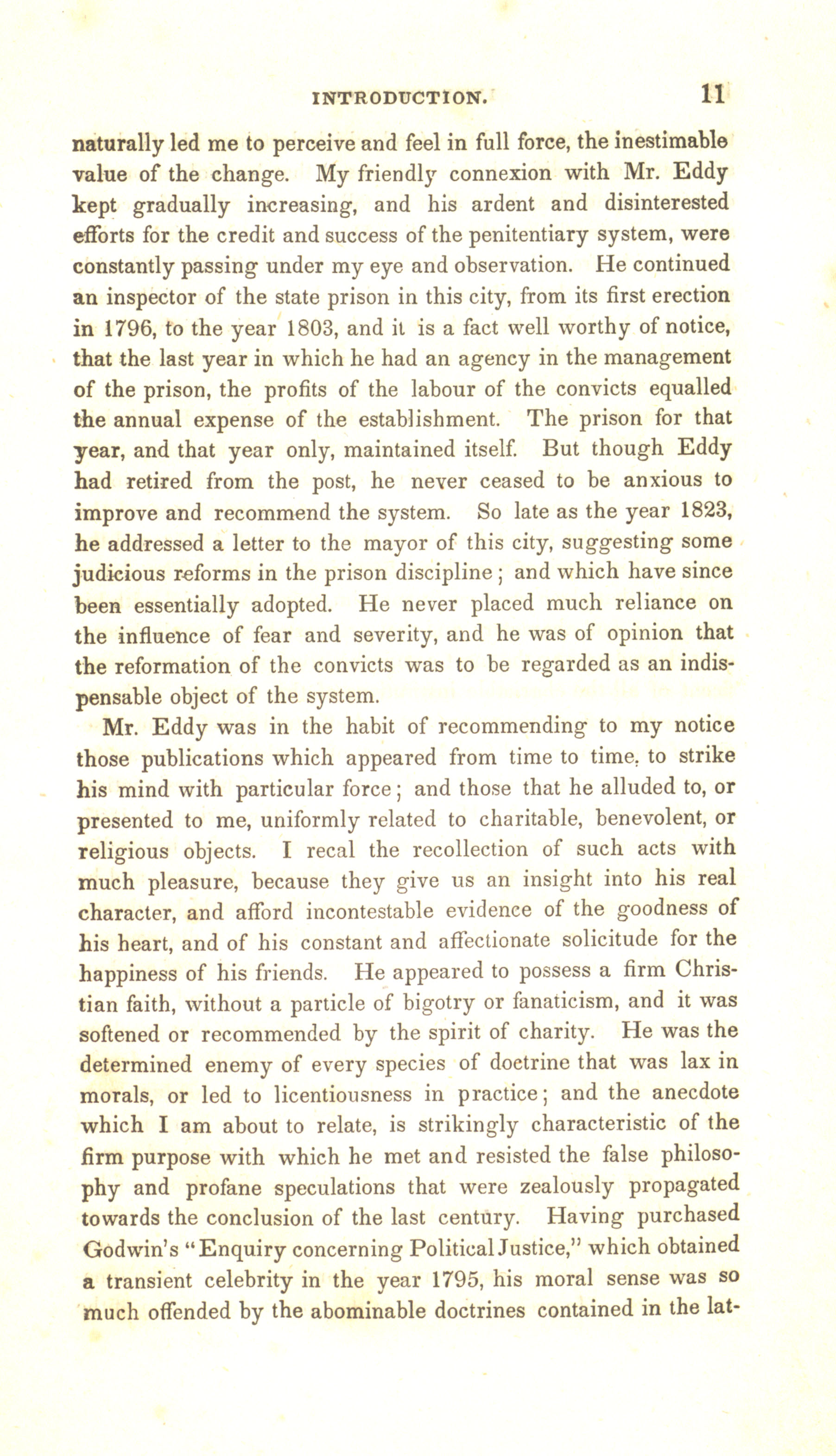naturally led me to perceive and feel in full force, the
inestimable
value of the change. My friendly connexion with
Mr. Eddy
Person Information
kept gradually increasing, and his ardent and disinterested
efforts for the credit and success of the penitentiary system, were
constantly passing under my eye and observation. He continued
an inspector of the state prison in this city, from its first erection
in 1796, to the year 1803, and it is a fact well worthy of notice,
that the last year in which he had an agency in the management
of the prison,the profits of the labour of the convicts equalled
the annual expense of the establishment. The prison for that
year, and that year only, maintained itself. But though Eddy
Person Information
had retired from the post, he never ceased to be anxious to
improve and recommend the system. So late as the year 1823,
he addressed a letter to the mayor of this city, suggesting some
judicious reforms in the prison discipline; and which have since
been essentially adopted. He never placed much reliance on
the influence of fear and severity, and he was of opinion that
the reformation of the convicts was to be regarded as an indis-
pensable object of the system.
Person Information
those publications which appeared from time to time to strike
his mind with particular force; and those that he alluded to, or
presented to me, uniformly related to charitable, benevolent, or
religious objects. I recal the recollection of such acts with
much pleasure, because they give us an insight into his real
character, and afford incontestable evidence of the goodness of
his heart, and of his constant and affectionate solicitude for the
happiness of his friends. He appeared to possess a firm Chris-
tian faith, without a particle of bigotry or fanaticism, and it was
softened or recommended by the spirit of charity. He was the
determined enemy of every species of doctrine that was lax in
morals, or led to licentiousness in practice; and the anecdote
which I am about to relate, is strikingly characteristic of the
firm purpose with which he met and resisted the false philoso-
phy and profane speculations that were zealously propagated
towards the conclusion of the last century. Having purchased
Godwin's "Enquiry concerning Political Justice," which obtained
a transient celebrity in the year 1795, his moral sense was so
much offended by the abominable doctrines contained in the lat-

